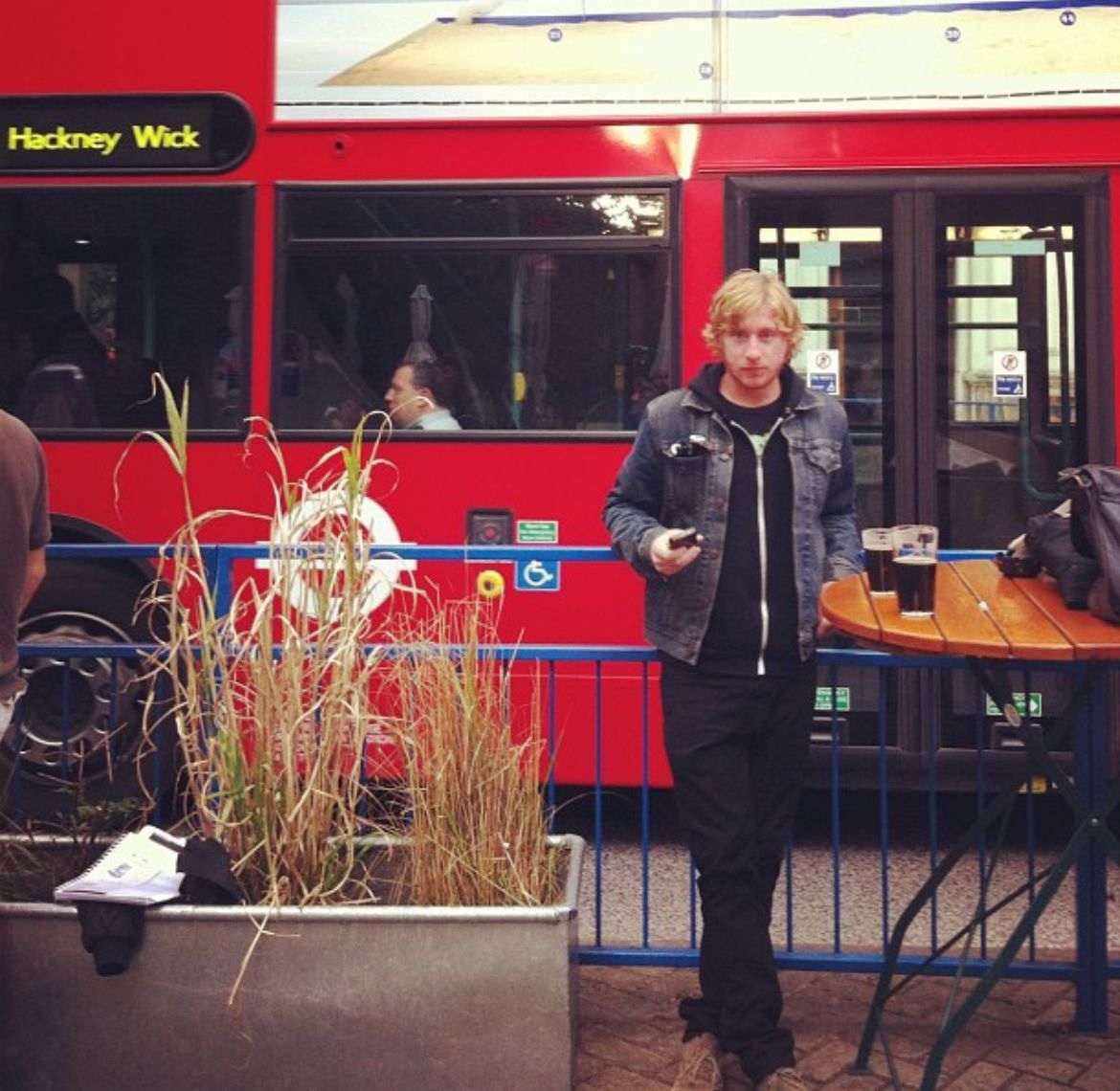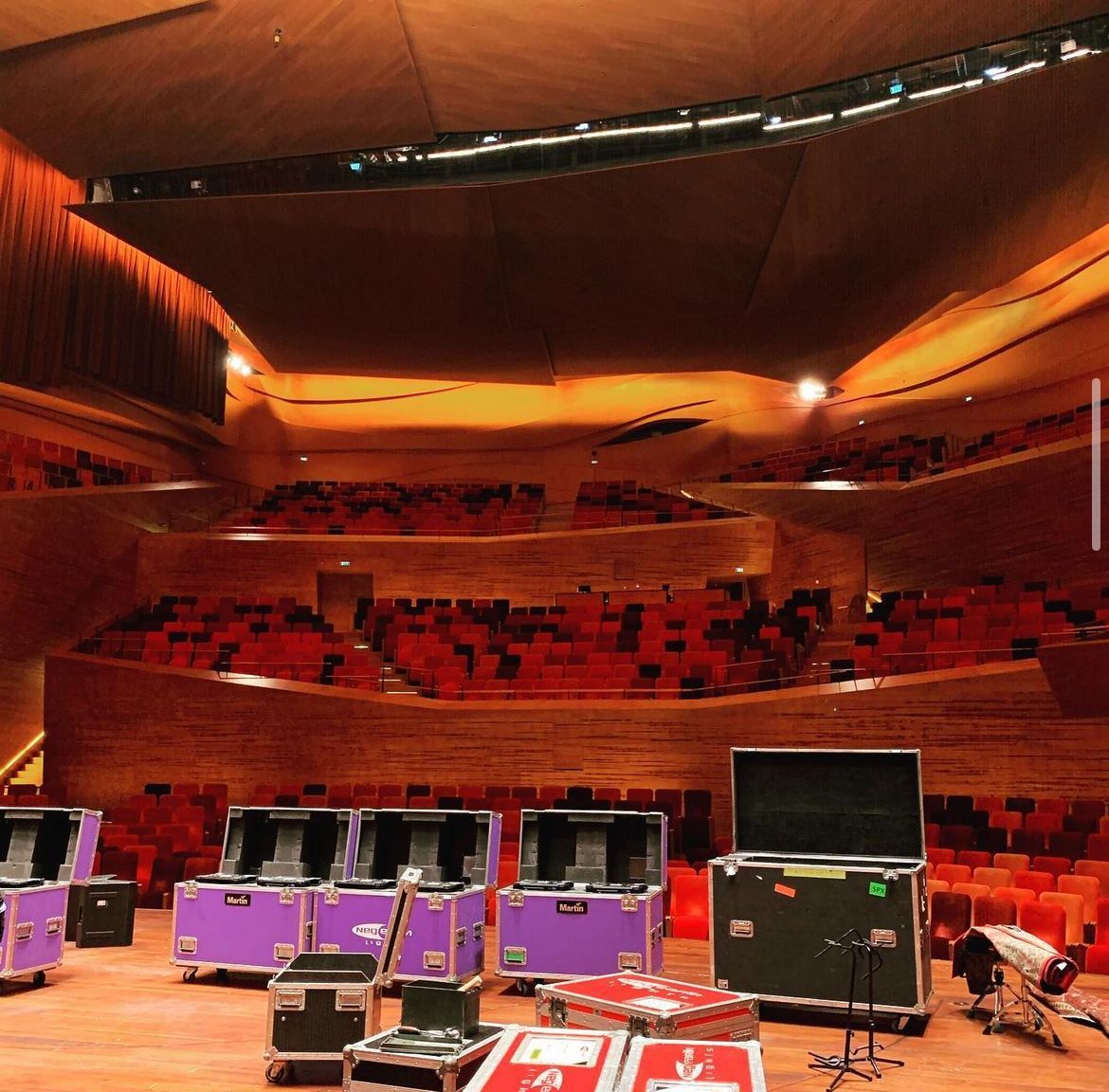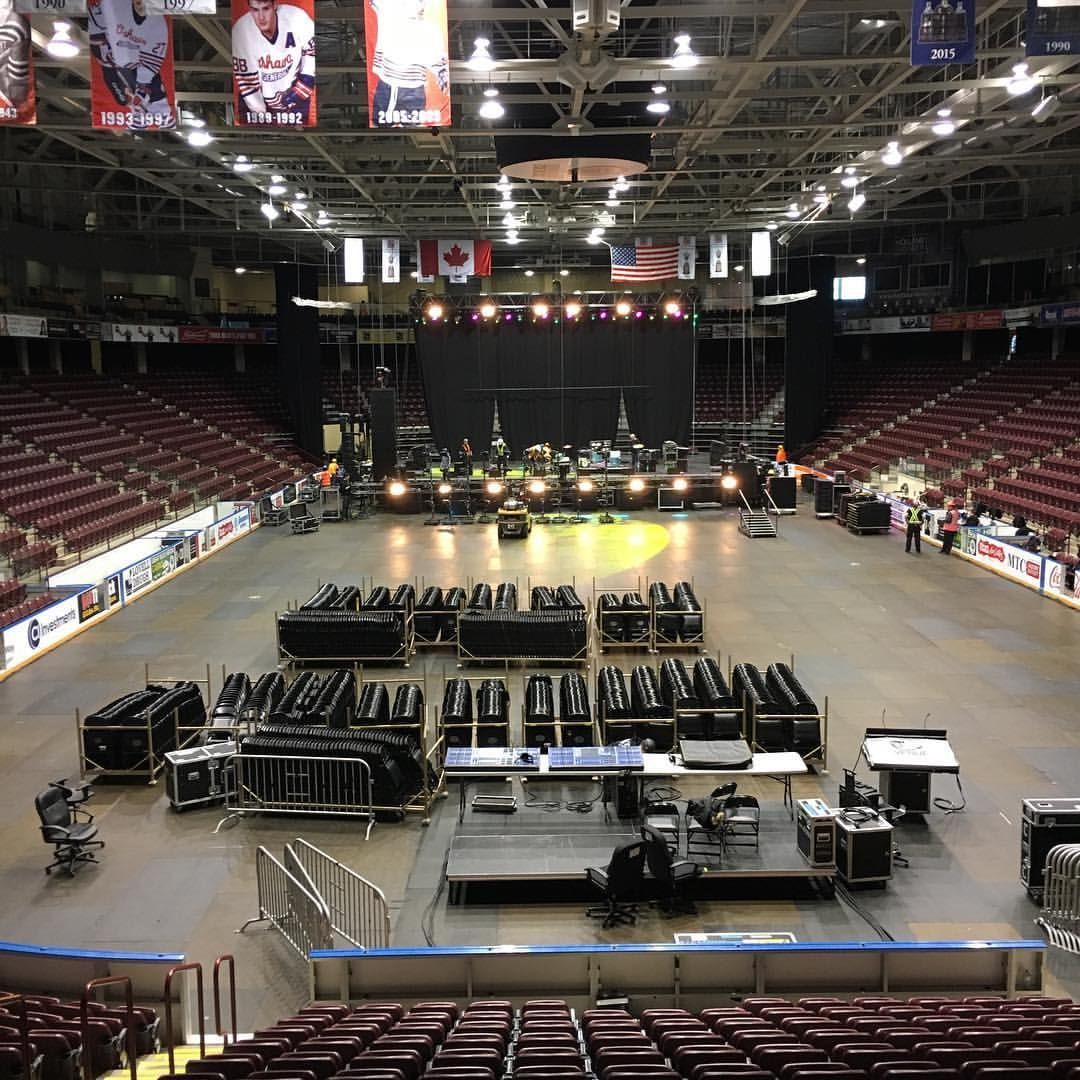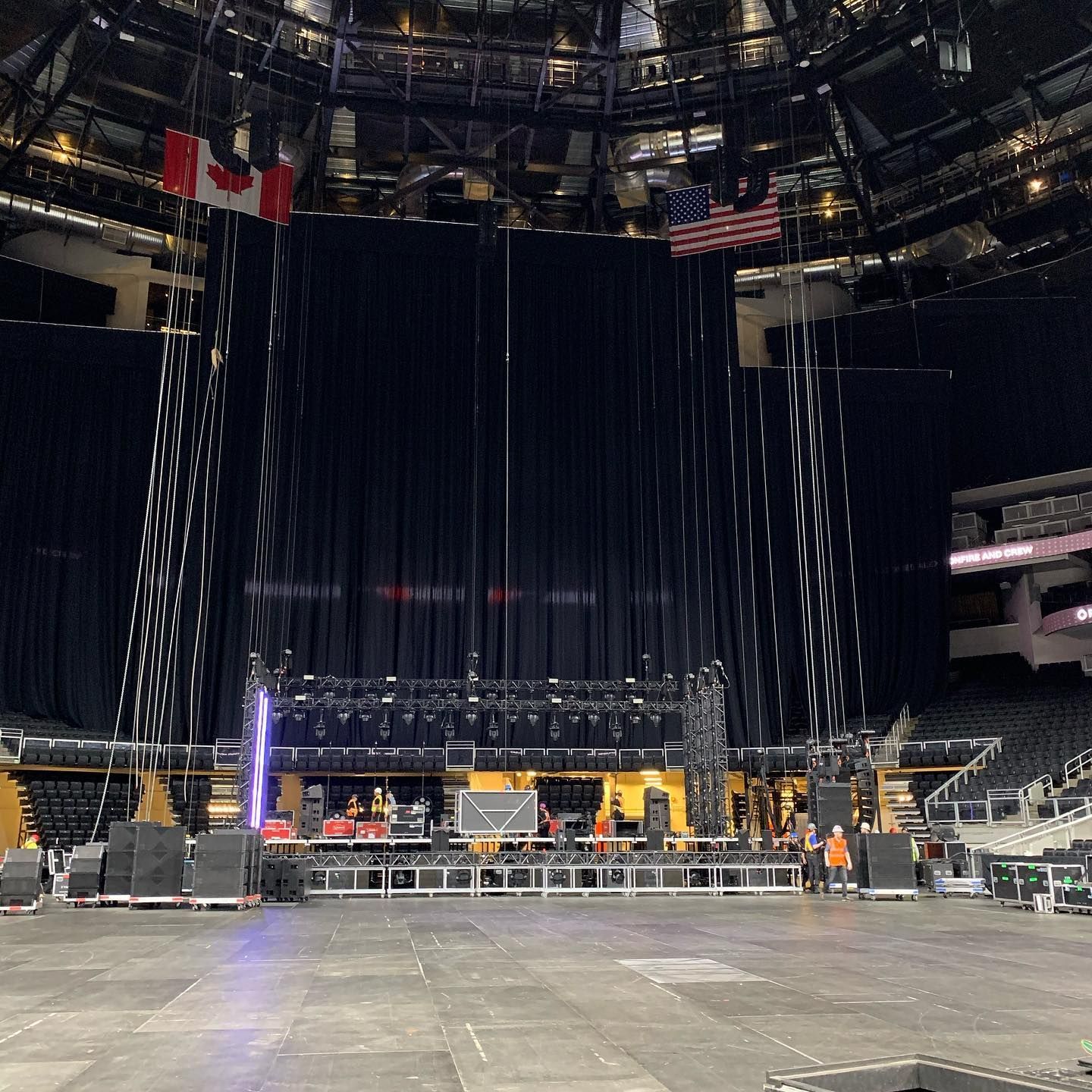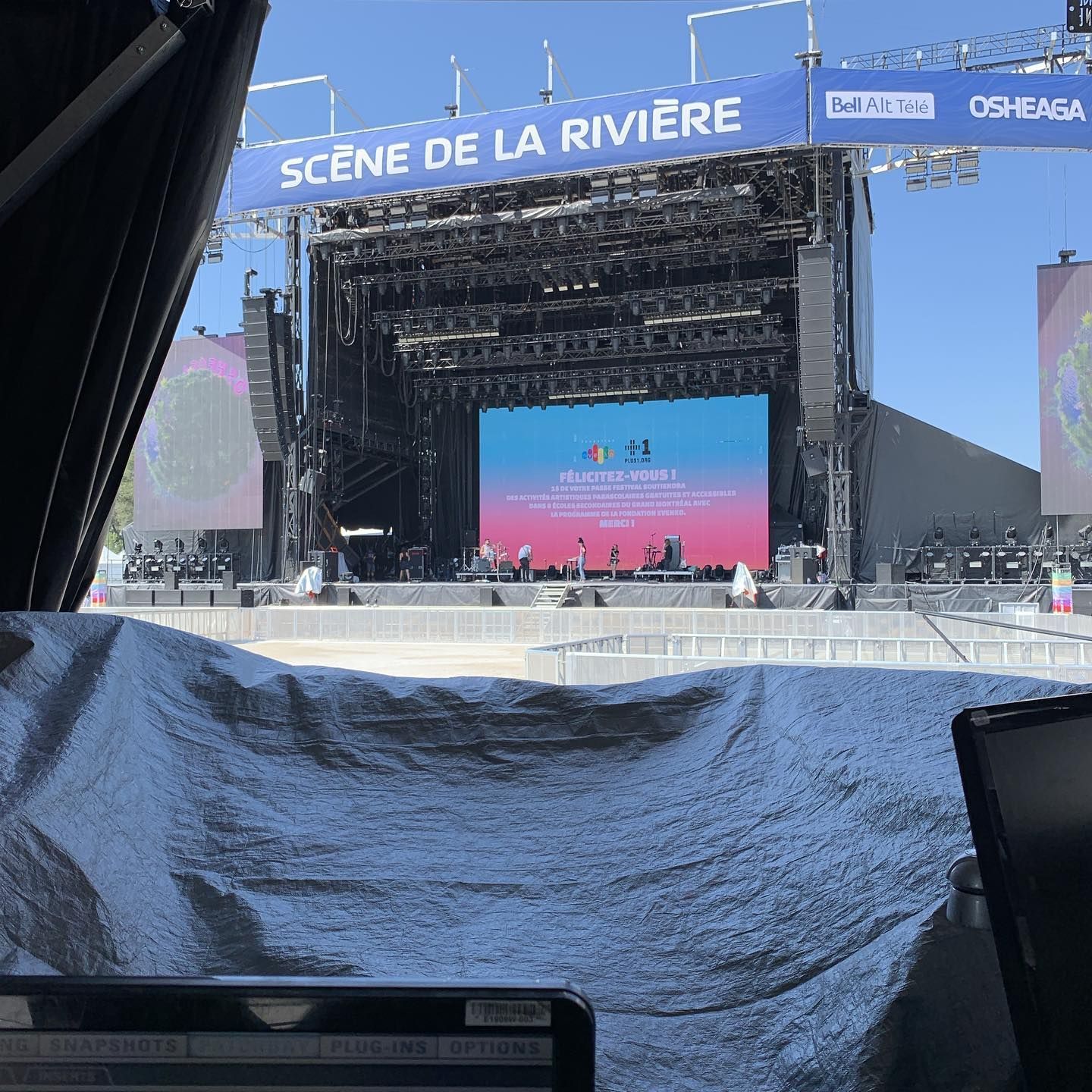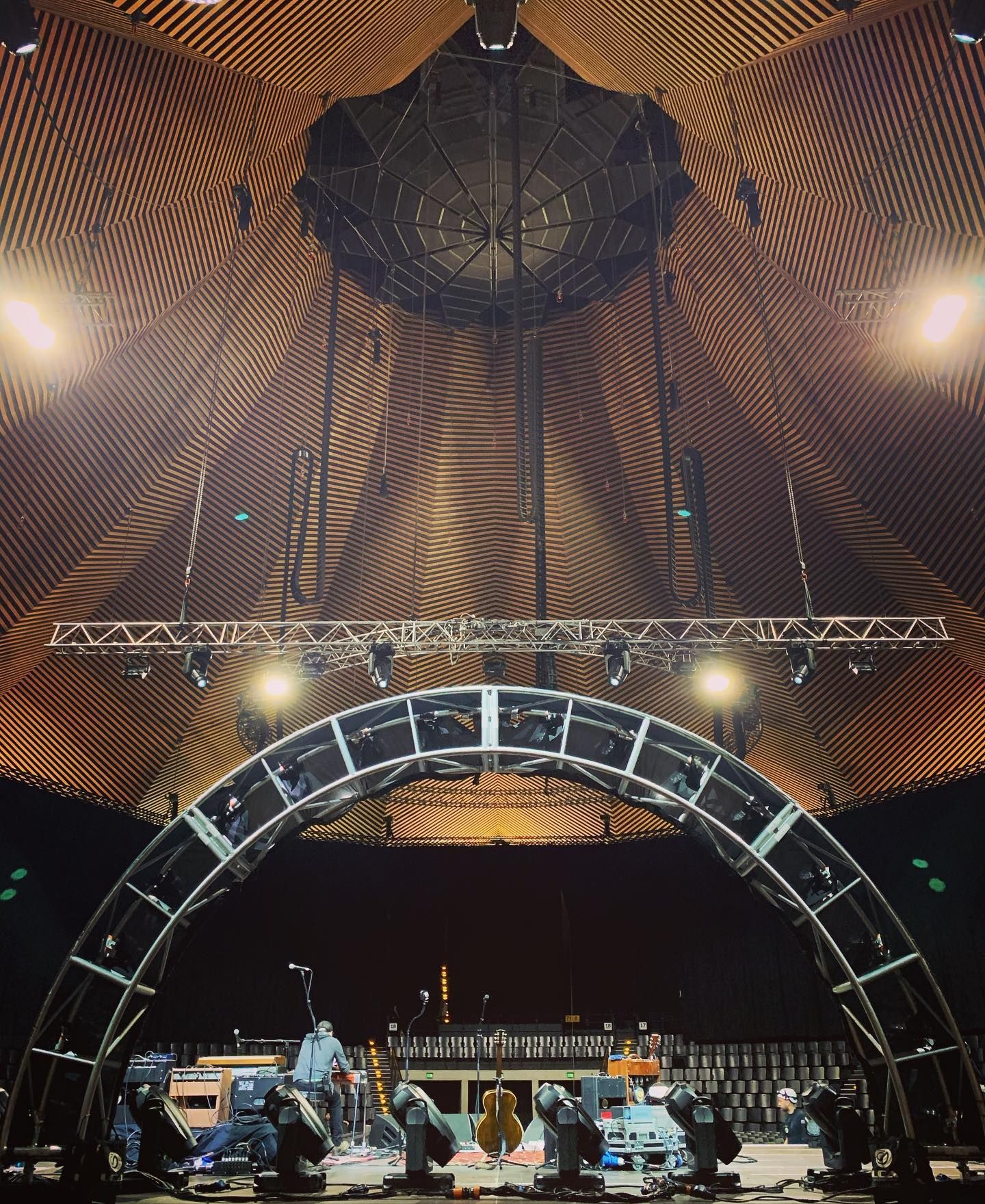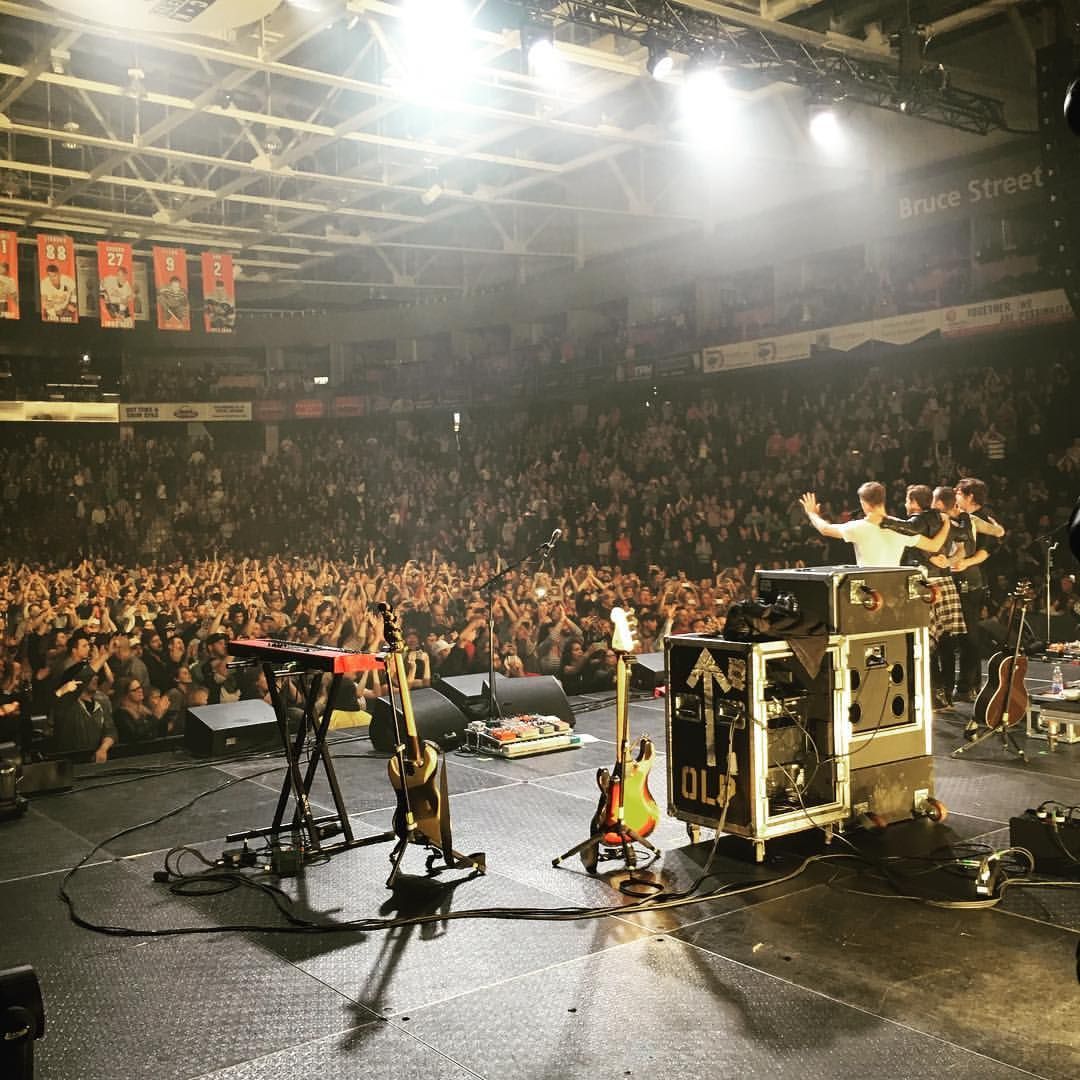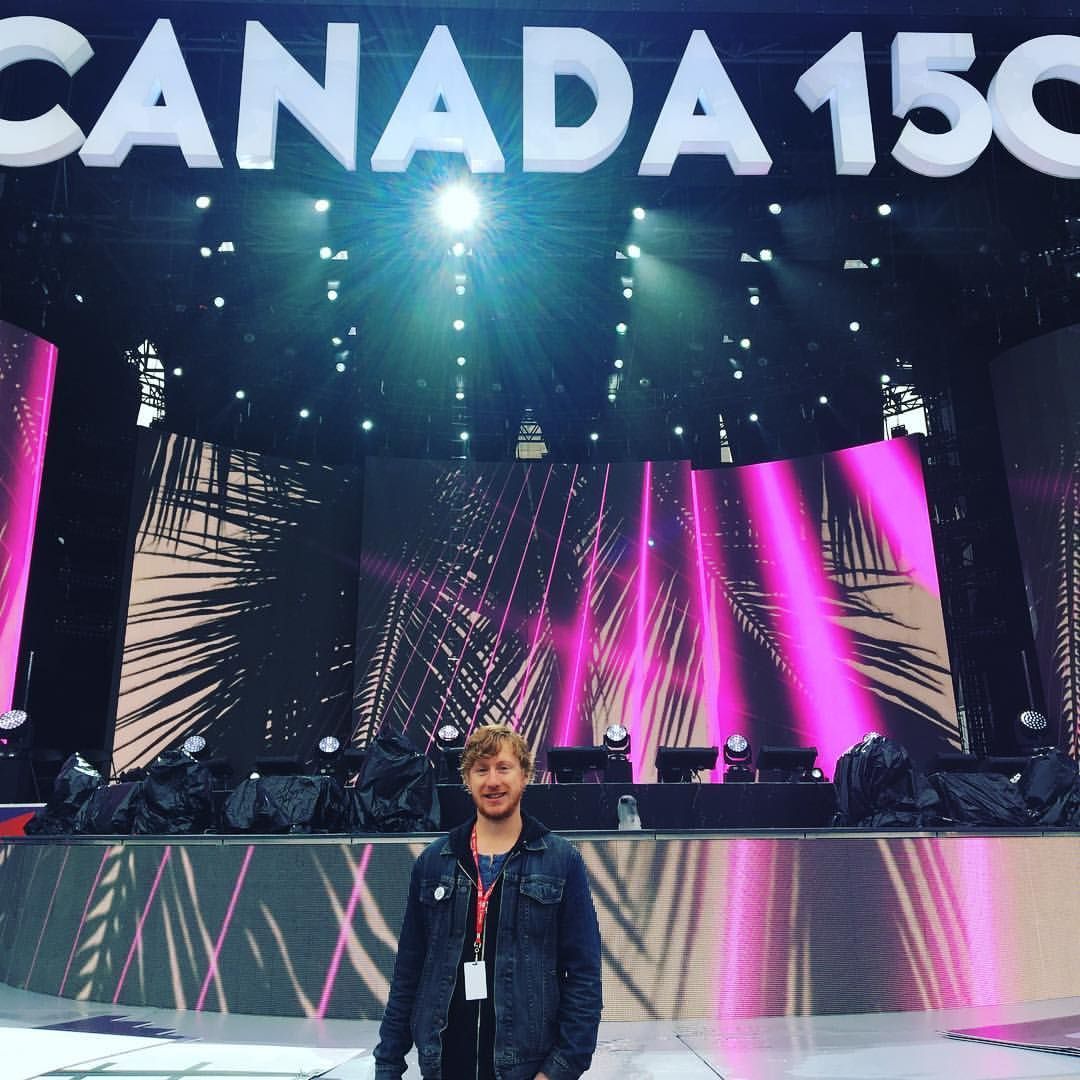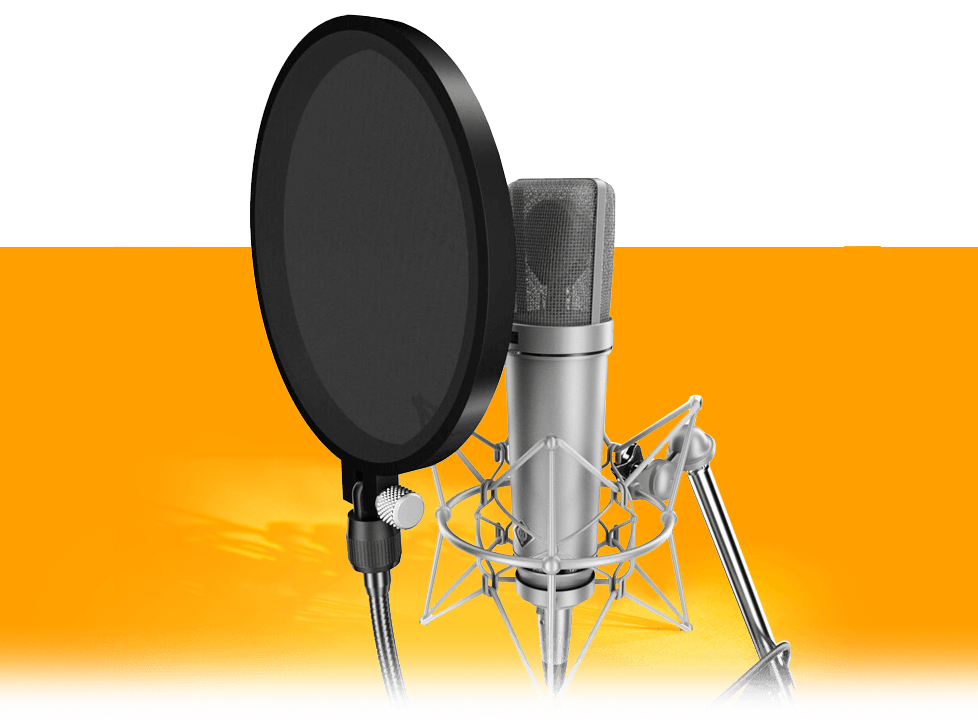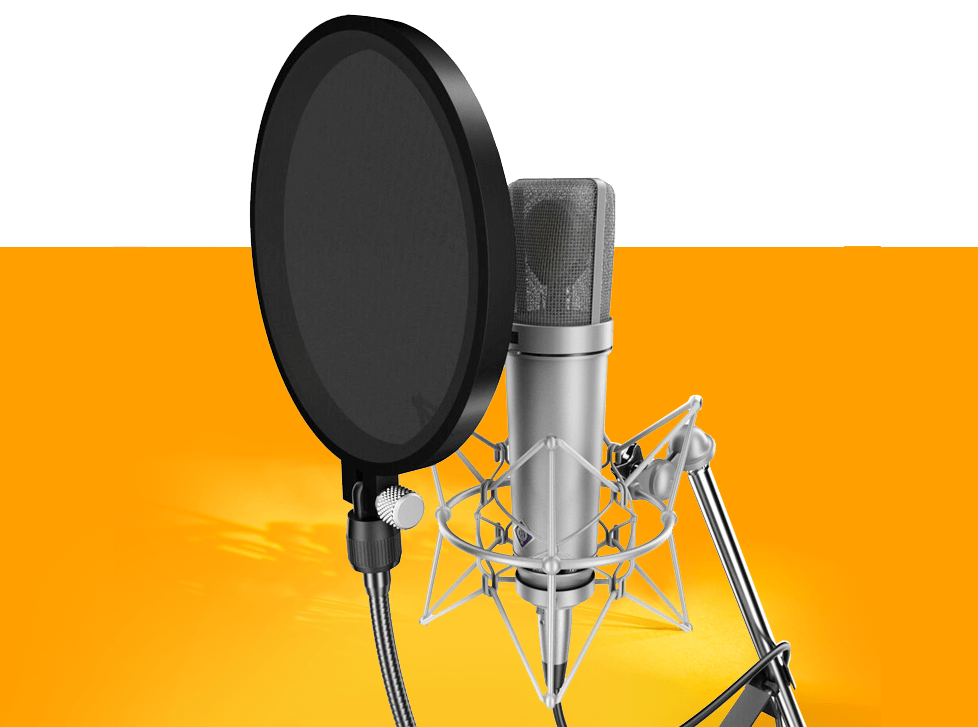Nathan Bond - Alumni Spotlight
Jeremy Alves | September 9, 2024
Nathan Bond (’03) has been a prominent figure in the live sound industry for over two decades, having embarked on a remarkable journey since graduating from the Ontario Institute of Audio Recording Technology. We recently caught up with Nathan during a stop in London, Ontario, as he worked with City and Colour on their Canadian arena tour.

A Versatile Career
Nathan’s career has seen him wear many hats: from tour manager to front of house and monitor mixer for a variety of bands. His impressive roster of clients includes Canadian rock legends Our Lady Peace, as well as Serena Ryder, Corb Lund, Dear Rouge, and Alexisonfire.
Starting as a freelance audio engineer after sharpening his skills at a PA shop in London, Ontario, Nathan’s dedication and expertise have allowed him to thrive on stages across Southern Ontario and beyond.
In August of 2024 Nathan supported Alexisonfire as they opened for world-renowned punk rock legends Blink-182 on their Canadian stop at Toronto’s Rogers Centre Stadium.
An Inspiring Encounter
OIART students had the unique opportunity to meet Nathan before he started his work at Budweiser Gardens during City and Colour’s London stop. Nathan’s visit included a guest lecture at the school, where he shared invaluable insights from his extensive career. Nathan discussed his approach to monitoring mixing, offered tips on navigating the industry, and recounted how his career took off after his time at OIART.
Watch the Video HERE
The Role of a Monitor Mixer
The monitor mixer plays a crucial role in live sound during soundchecks and performances. This engineer is responsible for managing the mix of microphone inputs so that performers can clearly hear themselves and their bandmates on stage.
A monitor engineer meticulously sets up microphones, adjusts levels, and fine-tunes EQs and effects to ensure that the performers have the optimal sound mix. During soundchecks, they work closely with the band to make necessary adjustments, ensuring a flawless performance.
Becoming a Monitor Engineer
In his Grad Spotlight, Nathan elaborates on his journey from OIART to managing large-scale stages and balancing family life while on tour. He provides insights into the day-to-day responsibilities of a monitor engineer and how his education at OIART laid the foundation for his successful career.
“Nathan emphasized, ‘OIART was instrumental in shaping my career. The knowledge and skills I gained there—ranging from signal flow and gain structure to problem-solving under pressure—have been essential to my daily work in the industry.’”
Nathan Bond’s story is a testament to the opportunities and career paths that OIART graduates can pursue. His success underscores the value of a strong educational foundation combined with dedication and passion for the craft.
How did OIART help you become a Live Sound Audio Engineer?
00:10 - Going to the school definitely like gave me the the knowledge to excel at the jobs that I had that got me to this point for sure.
It's going to give you just the skills that it doesn't matter if it's going into the studio or post-production or live sound. You're going to learn how to use those skills, be it whichever way you go with it afterwards. But it's really going to help for sure.
00:40 -
The diploma from the school means a lot to a lot of people in the industry. They know that people that come out of the school are going to work hard and do a good job.
When did you know you wanted to attend OIART’s Audio Engineering Course?
00:51 - I knew I wanted to do it, for sure. well, before I came here, you know, when I was a teenager, I had a little sound system in my basement, and I played in a band with my cousin, and I was always kind of more drawn to the technical side of things. So I was trying to make recordings my in my basement with a four track, cassette recorder. And, and I always knew
I kind of wanted to do that.
So when I found the school, it was it was for sure the place that I wanted to go to.
What is it like being a live sound engineer?
01:27 - I travel with the band and we carry our own monitor console in-ears, wedge speakers if needed. And, it's my responsibility for the day is to set all that stuff up.
And then I operate the show and tear it all down.
01:43 -
So my, my mixing board is usually set up at the side of the stage. And what I'm doing sound for is for the artist. Everything that I do is what the artist hears, not the not the crowd.
Sometimes it's on little speakers in front of them (artist) sometimes it's on in-ear monitors, but I control and work one on one with with the artists. And whatever they need to hear is what I do.
02:08 -
You know, I am, responsible for for handling all the RF frequencies, scanning of the, RF environment every day and coordinate all the frequencies so that everything, works together fine, and that we don't have any drop outs during the show.
And on top of that, it's just, you know, I am mixing mixing monitors for the whole band and the crew and the techs and everybody. You know, we travel with the same mixing board everywhere, so everything's kind of already dialed up and saved and, just small tweaks every day.
What is challenging about being a Live Sound Audio Engineer?
02:39 - I find everything really quite enjoyable, especially with these gigs I'm doing now. There's not a lot that isn't fun. Sometimes you have a challenging venue, maybe a challenging low in or a low out, or for the most part, we always make the best of everything and have a good time doing it.
02:56 -
You know, travelling and touring is tiring. It can definitely take a toll. You spend a lot of time, you know, on airplanes and a lot of time travelling, but it's also great. You know, we've been literally almost all over the whole world. Though it is, taxing and it can be taxing on your family at home it is a lot of fun, and we always make sure to make the best of it.
We do play a lot of shows, but they’re not always close to home. So when, when family does
get to come out, it's pretty special. my dad likes to come to shows and, and stick by me and and hang out, even though, standing side stage doesn't really sound the best. It's, it's a lot of fun to have family out.
How do you manage having family while you’re out on Tour?
03:33 - I've got a four and a half year old at home and a wife. You know, when you get home, you're home. I don't have to, like, go home and then go to work the next day. So it's nice to be at home and, I get to play with my daughter and and have fun with her. It's tough leaving again after that, but, it's kind of been like that our whole life, So everyone's used to it.
Mixing Monitors for Alexisonfire at Rogers Centre in Toronto Ontario, opening for Blink-182
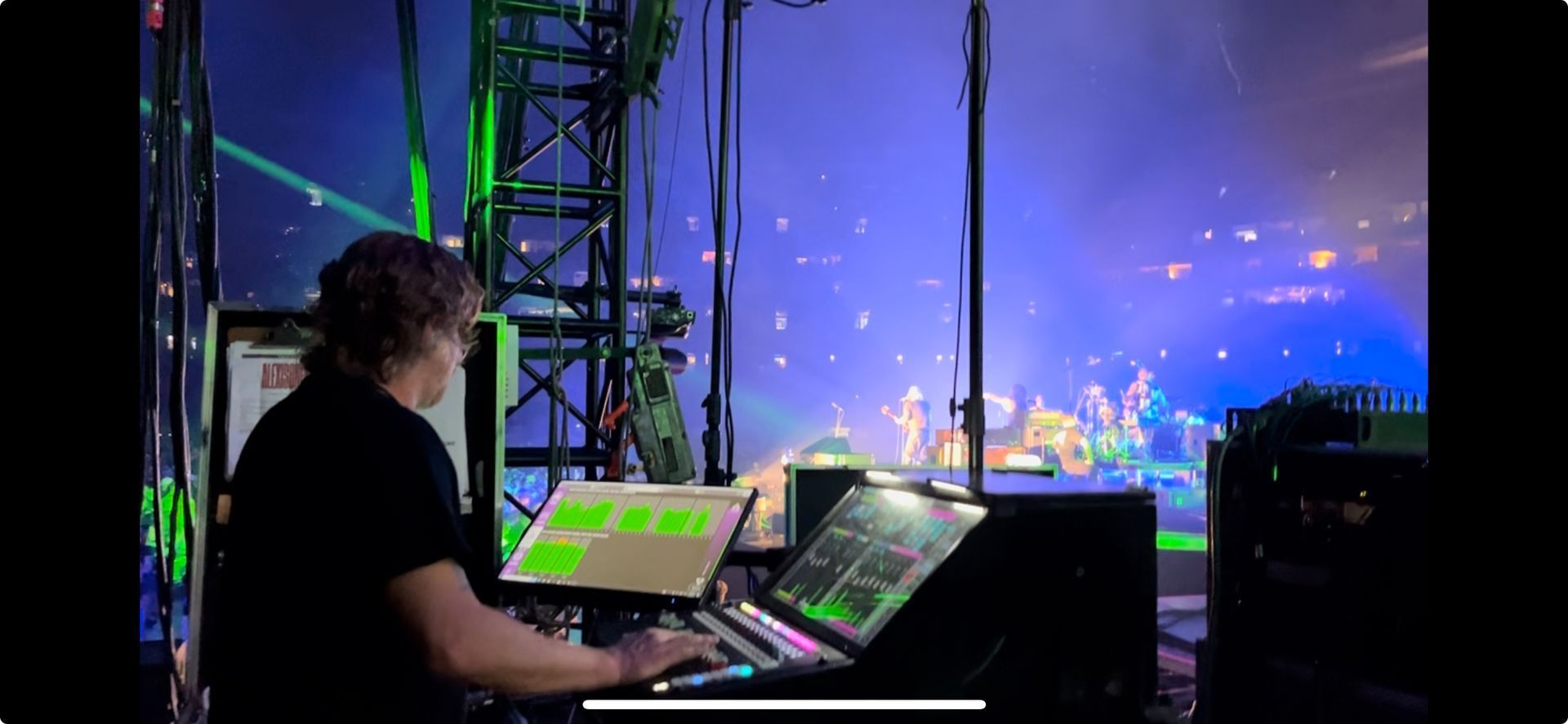
How does it feel coming back to OIART twenty years later?
[For a bit of context here, every year, our full-time instructors schedule time in the studios to have lectures from our most successful graduates for them to provide leading-edge advice and networking opportunities to help young graduates to get their start in the Audio Industry]
It's really cool. A lot has changed. A few things haven't changed. It was really nice. Just kind of, seeing all the the studio spaces and bringing back those old memories. I had a great time here. I really enjoyed my year at OIART.
I've always wanted to, like, kind of give a little speech here about, about that. And maybe I can inspire somebody to, to become a live sound engineer and and maybe do monitors and,
and if I did, then that's great.
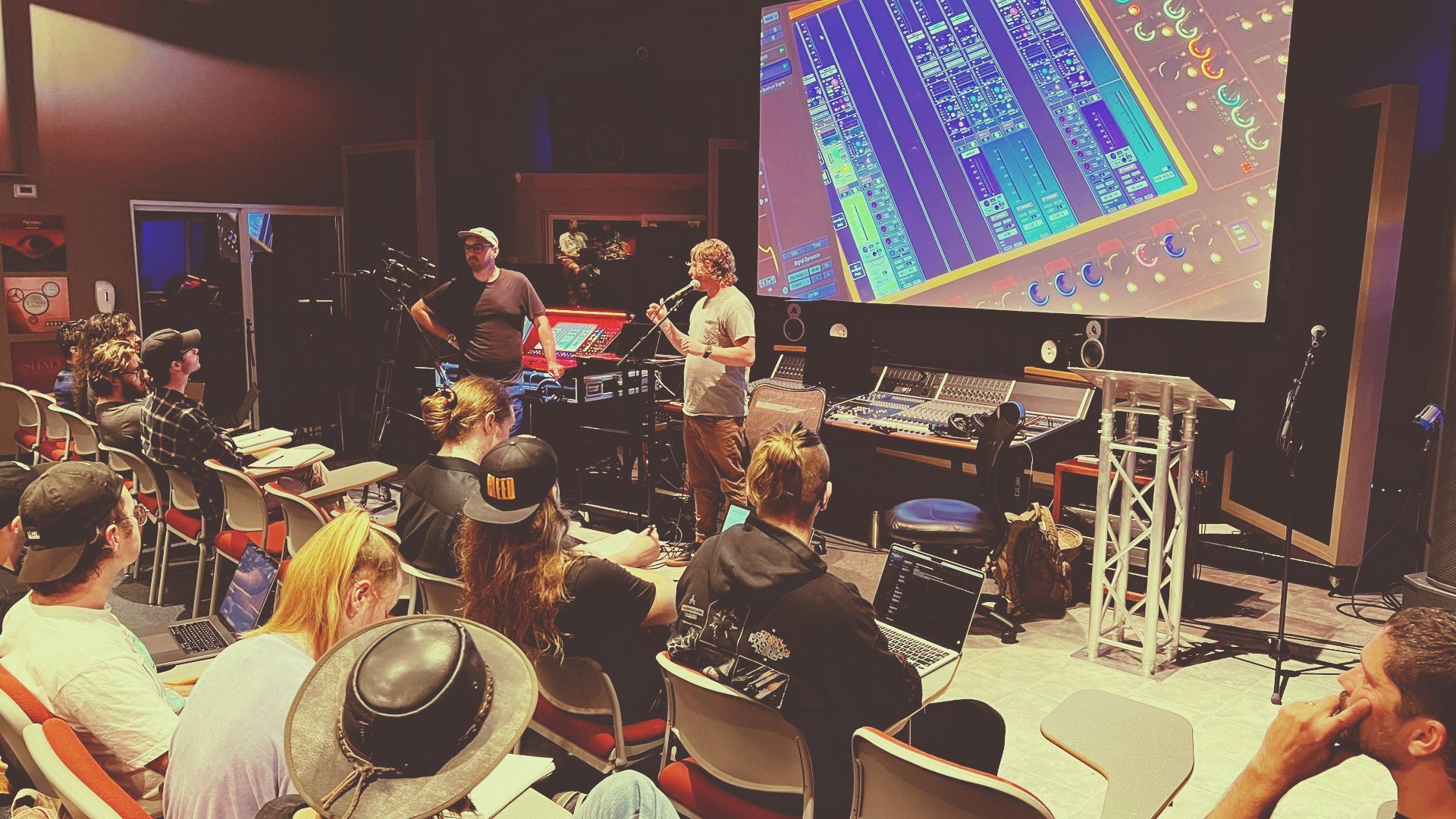
How does it feel coming back to OIART twenty years later?
[For a bit of context here, every year, our full-time instructors schedule time in the studios to have lectures from our most successful graduates for them to provide leading-edge advice and networking opportunities to help young graduates to get their start in the Audio Industry]
It's really cool. A lot has changed. A few things haven't changed. It was really nice. Just kind of, seeing all the the studio spaces and bringing back those old memories. I had a great time here. I really enjoyed my year at OIART.
I've always wanted to, like, kind of give a little speech here about, about that. And maybe I can inspire somebody to, to become a live sound engineer and and maybe do monitors and,
and if I did, then that's great.
Ready to Elevate Your Career? Get Formal Training and Recognition with OIART
A career in music production offers incredible diversity, excitement, and creativity. Unlike many other professions, it provides you with the opportunity to shape your daily work around your passion for music, trends, and collaboration with artists.
While it's possible to begin producing music without formal training, obtaining industry-recognized qualifications can be crucial for advancing your career and securing roles as an in-house producer or achieving significant milestones.
The Ontario Institute of Audio Recording Technology (OIART) stands out as one of Canada's premier music production schools. Our program is designed to equip you with the skills and knowledge needed for a successful and fulfilling career in the music industry. You'll gain hands-on experience with the latest techniques and technologies and develop a comprehensive understanding of the industry's landscape.
Are you ready to embark on your new career path? Apply to OIART today and take the first step towards shaping your ideal workday in the world of music production.
Ready to Start?
OIART's Audio Program Includes:
✓ Small Class Sizes
✓ On Site Facilities
✓ Industry Leading Instructors
✓ Post Grad Support & Guidance
✓ Exclusive 11 Month Program
Top Reasons Why You Should Choose OIART.
Have Questions?
If you have questions about our audio engineering and music production program or would like to book a tour, we would be pleased to speak with you.
Text Us: 519.200.4151
Share This With a Fellow Music Lover
Apply in 4 Steps!
Step 1: Click apply now.
Step 2: Answer 8 questions about yourself.
Step 3: Upload supporting documents.
Step 4: That's it! You are done.
Share this with fellow music lovers
